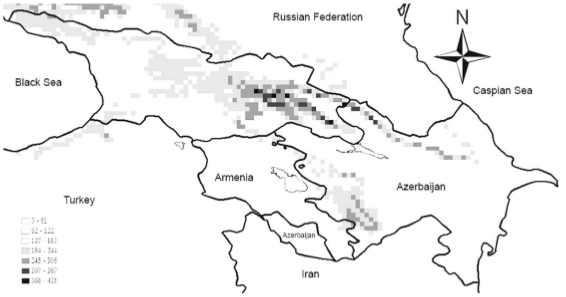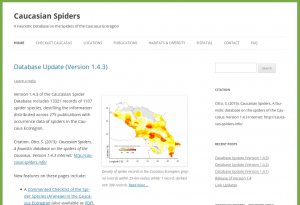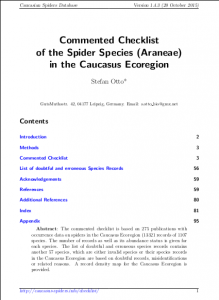Chaladze, G., S. Otto & S. Tramp (2014): A spider diversity model for the Caucasus Ecoregion. Journal of Insect Conservation 18(3): 407-416 DOI 10.1007/s10841-014-9649-1 PDF

Species richness distribution of all species with a valid distribution model across the study area. Darker shades indicate higher predicted numbers of species
Abstract: Precise information on spatial patterns of species richness and endemic species distribution is important for effective species conservation. In the Caucasus Ecoregion such information is virtually non-existent for invertebrate taxa. Using occurrence data from a large database we calculated species distribution models with the GARP algorithm for 471 spider species to visualize the diversity distribution of spider species in this region. Overall species diversity was highest in mountain forests of the North Caucasus, east-central Georgia, the southern slopes of the eastern Great Caucasus and south-east Azerbaijan. A regression tree analysis Chi squared automatic interaction detector method revealed the mean temperature of the driest quarter and precipitation parameters to be the main environmental factors shaping these patterns. Diversity of endemic species was correlated with overall species diversity but hotspots of endemic species (10+ percent of all species) exists in high-mountain areas, suggesting post-glacial speciation events in the high mountains as the main sources of high endemism in Caucasus. Further information on the spatial distribution of species diversity of invertebrate taxa in the Caucasus Ecoregion is needed to improve conservation efforts in this biodiversity hotspot.



